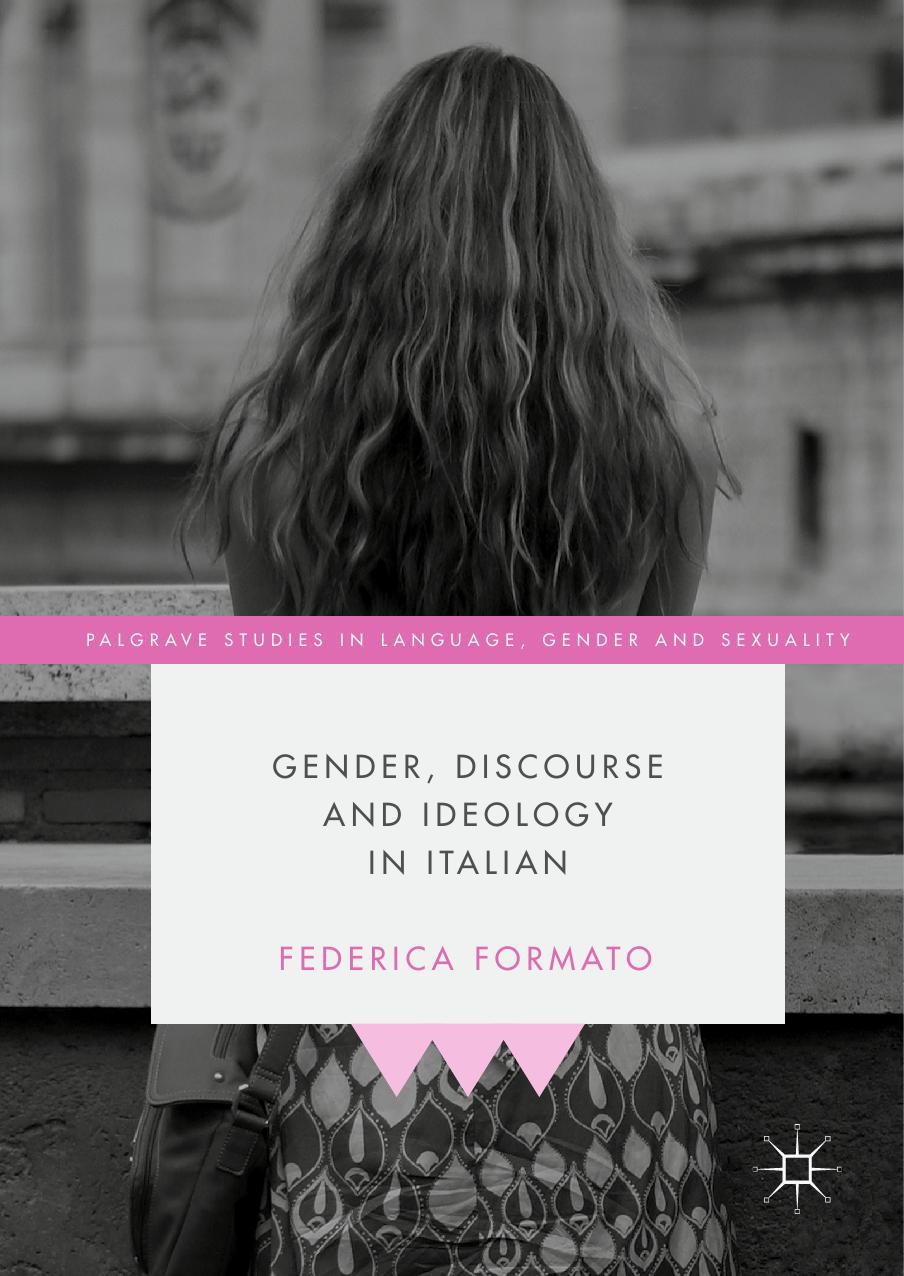Gender, Discourse and Ideology in Italian by Federica Formato

Author:Federica Formato
Language: eng
Format: epub, pdf
ISBN: 9783319965567
Publisher: Springer International Publishing
Gender Counts: Sindac- as a Form of Reference
In this section, I investigate the job-title sindac- (mayor) as a grammatical root for gendered morphological inflections , i.e. unmarked masculine sindaco [singular] and the marked sindaca [feminine], together with other gendered forms used for this job-title (a list of the forms is presented below) when referring to female mayors. This investigation follows two previous works undertaken on the same topic; the first is an investigation into forms of address in parliamentary debates (2008–2011) used by male and female MPs when starting their interventions (Formato 2014, reviewed in Chapter 3) and the second, an examination of the forms of reference Ministra (marked) and Ministro (unmarked) in three daily, widely sold newspapers (Formato 2016). The findings portray a ‘male as a norm’ situation, in which unmarked masculine forms exclusively used for women are predominant in both sets of data—parliamentary debates and newspaper articles. The investigation into Ministra and Ministro also shows that the unmarked masculine is seen as more official, used in conjunction with the name of the ministry—e.g. Ministro dell’Istruzione (Minister of Education)—and the name of the minister—Ministro Maria Elena Boschi . The unmarked is also used with adjectives that signal status and competence (e.g. competente). On the other hand, the marked feminine form, less widely used, seems to be employed as an anaphoric reference, followed by punctuation or zero (meaning nothing) and employed with adjectives that signal physical appearance, geographical origin and competence. The marker competence is a gendered one as the terms in this group, for instance, brava (good), collocate with women-related terms when cross-checked in a larger corpus (itTenTen, 2 billion words, accessed through Sketchengine , Kilgarriff 2012), e.g. madre (mother). These two studies drove me to investigate more forms used in the media to reference women in specific political offices, as, for instance, mayors. Political circumstances, as discussed below, guided my investigation of the gendered term of reference sindac- (root for mayor). I decided to address the following research question: What gendered forms are used in three Italian newspapers to refer to three female candidates for the role of mayor in three pre- and post-elections?
In the following sections, I explain in detail how the study has been conducted, starting with the corpus built for this investigation.
Download
Gender, Discourse and Ideology in Italian by Federica Formato.pdf
This site does not store any files on its server. We only index and link to content provided by other sites. Please contact the content providers to delete copyright contents if any and email us, we'll remove relevant links or contents immediately.
Cecilia; Or, Memoirs of an Heiress — Volume 1 by Fanny Burney(31322)
Cecilia; Or, Memoirs of an Heiress — Volume 3 by Fanny Burney(30928)
Cecilia; Or, Memoirs of an Heiress — Volume 2 by Fanny Burney(30885)
The Great Music City by Andrea Baker(21195)
We're Going to Need More Wine by Gabrielle Union(18064)
Bombshells: Glamour Girls of a Lifetime by Sullivan Steve(13100)
Pimp by Iceberg Slim(12922)
All the Missing Girls by Megan Miranda(12739)
Fifty Shades Freed by E L James(12443)
Norse Mythology by Gaiman Neil(11873)
Talking to Strangers by Malcolm Gladwell(11861)
Crazy Rich Asians by Kevin Kwan(8340)
Mindhunter: Inside the FBI's Elite Serial Crime Unit by John E. Douglas & Mark Olshaker(7827)
The Lost Art of Listening by Michael P. Nichols(6462)
Enlightenment Now: The Case for Reason, Science, Humanism, and Progress by Steven Pinker(6402)
Bad Blood by John Carreyrou(5761)
The Four Agreements by Don Miguel Ruiz(5502)
Weapons of Math Destruction by Cathy O'Neil(5029)
We Need to Talk by Celeste Headlee(4861)
